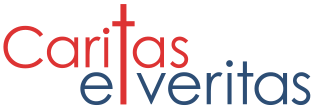Caritas et veritas 2018, 8(2):59-77 | DOI: 10.32725/cetv.2018.036
What's Wrong in Modern Education? Maritain's Warning is Valid Today More than Ever
- Trnava university in Trnava, Faculty of Education, Department of Educational Studies, Priemyselná 4, 918 43 Trnava
The neo-Thomist philosopher Jacques Maritain, in his pedagogical work Education at the Crossroads (1943), which contains four lectures delivered at Yale University, organically presents his dual vision on which his educational-philosophical considerations are based: awareness of values that make the person one universe and 'the absolute', which is connected with the sense of historical forms and needs. Transhistorical ideals need to be transferred to time structures. Education at the Crossroads deals with pedagogical questions in relation to the nature and aim of the human person, especially in the function of requirements typical for modern civilisation and education. Education is primarily a service of help to human nature that acquires its own developed form in man. Education is an extraordinarily demanding art which, by its very nature, belongs to the sphere of morality and practical wisdom. Maritain identifies seven major misconceptions in the effort to reflect education theoretically, which is, however, directly transferred to defective educational practice: 1. a confusion of ends with means, 2. a image of the end of education, 3. the focus of education on practice, 4. sociologism, 5. intellectualism, 6. voluntarism, and 7. a belief in the omnipotence of education. The submitted paper presents and analyses Maritain's warnings for education, valid perhaps even more today than at the time they were written.
Klíčová slova: Jacques Maritain, philosophy of education, personalism, pedagogy, integral humanism, seven misconceptions
Zveřejněno: 30. září 2018 Zobrazit citaci
Reference
- Eugene KELLY, Material Ethics of Value: Max Scheler and Nicolai Hartmann, New York: Springer, 2011.
 Přejít k původnímu zdroji...
Přejít k původnímu zdroji... - Jacques MARITAIN, Education at the Crossroads, New Haven: Yale University Press, 1943.
- Jacques MARITAIN, Pour une philosophie de l'éducation, Paris: Fayard, 1969, 2nd ed.
- Francesca FERRANDO, Posthumanism, Transhumanism, Antihumanism, Metahumanism, and New Materialisms Differences and Relations, Existenz. An International Journal in Philosophy, Religion, Politics, and the Arts. Volume 8, No 2, Fall 2013, pp. 26-32.
- Gerald L. GUTEK, Jacques Maritain and John Dewey on Education: A Reconsideration. Educational Horizons, Summer 2005.
- Marek WIESENGANGER, Perspectives of Philosophy of Education according to Jacques Maritain, Acta Facultatis Paedagogicae Universitatis Tyrnaviensis, Ser. D, 2011, no. 15.
- Jacques MARITAIN, The Education of Man. The Educational Philosophy of Jacques Maritain, Notre Dame: University of Notre Dame Press, 1967.
- Wolfgang BREZINKA, Filozofické základy výchovy, Prague: Zvon, 1996.
- Mario O. D'SOUZA, Jacques Maritain's Seven Misconceptions of Education: Implications for the Preparation of Catholic School Teachers, Journal of Catholic Education, 5 (4).
- John DEWEY, Education and experience, New York: Collier Books.
- Mario O. D'SOUZA, Maritain's Philosophy of Education and Christian Religious Education, Journal of Catholic Education, 4 (3).
- Jacques DERRIDA, Of Grammatology, Baltimore: Johns Hopkins University Press, 1976.
- Floyd MERRELL, Deconstruction Reframed, West Lafayette: Purdue University Press, 1985.
 Přejít k původnímu zdroji...
Přejít k původnímu zdroji... - Gianni VATTIMO and Pier Aldo ROVATTI (eds.), Il pensiero debole, Milano: Feltrinelli, 1983.
- Robin USHER and Richard EDWARDS, Postmodernism and Education, London: Routledge, 1994.
- Anne FAUSTO-STERLING, Sexing the Body, New York: Basic Books, 2000.
- Paul Konrad LIESSMANN, Teorie nevzdělanosti. Omyly společnosti vědení. Prague: Academia, 2008.
- Arthur SCHOPENHAUER, Die Welt als Wille und Vorstellung, Stuttgart: Reclam, 2013.
- Gilles LIPOVETSKY, L'ère du vide: Essais sur l'individualisme contemporain, Paris: Gallimard, 1983.
- Gilles LIPOVETSKY, Éra prázdnoty. Úvahy o současném individualismu, Prague: Prostor, 2008.
- Emily LOMBARDI, Character Education: Integration of an Ancient Theory, ESSAI Vol. 7 (2009), Article 32.
- Martin BRESTOVANSKÝ, Prosocial Moral Reasoning and Behaviours: the Role of Ethics Education, Forum Pedagogiczne 2016/2.
 Přejít k původnímu zdroji...
Přejít k původnímu zdroji... - Pavol DANCÁK, The personalistic view of education in the philosophy of J. Maritain, Studia Ubb Theol. Cath., LIX, 1-2, 2014.
- Emmanuel MOUNIER, A Personalist Manifesto, London: Longmans, Green and Co., 1938.
- Emmanuel MOUNIER, Che cos'è il personalismo? Turin: Einaudi, 1975.
- © Joseph H. OLDHAM, Real Life is Meeting, London: The Sheldon Press, 1958, available from: http://www.chebucto.ns.ca/Philosophy/Sui-Generis/Berdyaev/essays/rlm.htm, cited 6th January 2019.
- Martin BUBER, Between Man and Man, Boston: Beacon Press, 1957.
- Zygmunt BAUMAN, Liquid Times: Living in an Age of Uncertainty. Cambridge: Polity Press, 2007.
- Giancarlo GALEAZZI in Jacques MARITAIN, Per una filosofia dell'educazione. Brescia: La Scuola, 2001.
Tento článek je publikován v režimu tzv. otevřeného přístupu k vědeckým informacím (Open Access), který je distribuován pod licencí Creative Commons Attribution 4.0 International License (CC BY 4.0), která umožňuje distribuci, reprodukci a změny, pokud je původní dílo řádně ocitováno. Není povolena distribuce, reprodukce nebo změna, která není v souladu s podmínkami této licence.



